Taiwan Is Getting Serious About Self-Defense

Taiwan Is Getting Serious About Self-Defense
Turning Taiwan into a porcupine will be essential for staving off a Chinese attack.
Taiwanese President Lai Ching-te inspects military drills at Hualien Air Force Base in Hualien, Taiwan, on July 23, 2024. Annabelle Chih/Getty Images
The Taiwan Strait may be the most likely candidate for the place that sets off World War III. Until recently, however, Taiwan was not acting like a country facing a growing threat of invasion from a ruthless, nuclear-armed, great-power neighbor that has made its intent to control the island abundantly clear.
Fortunately, Taiwan is finally taking its self-defense seriously. This is important for many reasons, not least of which is that an “America First” president will not help a country unwilling to help itself.
The Taiwan Strait may be the most likely candidate for the place that sets off World War III. Until recently, however, Taiwan was not acting like a country facing a growing threat of invasion from a ruthless, nuclear-armed, great-power neighbor that has made its intent to control the island abundantly clear.
Fortunately, Taiwan is finally taking its self-defense seriously. This is important for many reasons, not least of which is that an “America First” president will not help a country unwilling to help itself.
I have had the privilege of visiting Taiwan on annual delegation trips for the past several years, and the change in Taiwan’s defense posture over that period has been nothing short of remarkable.
As late as 1990, after all, the Taiwanese military spent time and resources planning for Taiwan’s possible invasion of mainland China—a long-standing dream since Chinese leader Chiang Kai-shek retreated to the island after losing the Chinese civil war, but now little more than a pipe dream given the power imbalances between the two sides.
U.S. defense officials have often been frustrated by Taiwan’s approach to military procurement, with its military requesting purchases of flashy and expensive weapons platforms—such as F-35 aircraft—that are ill-suited for the most likely threats it faces. Countering a Chinese amphibious invasion or blockade requires asymmetric capabilities—such as anti-ship missiles—not big, expensive targets for Chinese missile salvos.
Just two years ago, my colleagues and I toured one of the Taiwanese Navy’s corvettes. A former senior U.S. official asked them what they would do after the ship ended up at the bottom of the Strait 15 minutes after the start of a war with China.
The West prioritizes civilian leadership of the military, but the Taiwanese Defense Ministry has often been led by hidebound military officers. Taiwan’s military culture was formed under the Kuomintang’s authoritarian rule, pro-Beijing in its sympathies and resistant to reform. A previous attempt to install a civilian defense minister in 2013, for example, was resisted by the ranks and lasted all of six days.
As one example of this problem, I asked a senior Taiwanese military officer several years ago about the Chinese nuclear threat. He replied that he was not too worried because Chinese President Xi Jinping would never use nuclear weapons against Taiwan because they are all Chinese people.
Tsai Ing-wen, Taiwan’s president from 2016 to 2024, was a strong leader who understood the threat from China. In attempting to balance defense strategy with societal and economic stability, she worried that focusing too publicly on the threat could needlessly antagonize Beijing, unsettle Taiwan’s population, and scare the international business community. This understandable caution sometimes came at the expense of military preparedness.
Another dent in Taiwan’s armor has been a split in public opinion. It has been governed by the pro-independence Democratic Progressive Party (DPP) for more than a decade, but the opposition Kuomintang is more sympathetic to the Chinese Communist Party (CCP). Misled by aggressive CCP disinformation campaigns, a significant share of Taiwanese people believe that the DPP and their friends in Washington are primarily responsible for stoking tensions with China.
On past trips, these issues led my colleagues and I to sometimes wonder whether the United States cares more about Taiwan’s security than Taiwan does itself. Why should Americans die to defend Taiwan if the Taiwanese aren’t doing what it takes to ensure their own self-defense?
This, however, was not the takeaway from our most recent trip. There is a new energy in Taiwan—and a welcome and unprecedented seriousness about its self-defense.
The new approach starts at the top. Taiwanese President Lai Ching-te has been more aggressive than his predecessor in calling attention to the China threat and taking measures to counter it. This includes, for example, declaring China a “hostile foreign force,” reinstating military tribunals to try retired military officers engaged in espionage for China, and deporting Chinese nationals who glorify the CCP’s plans to conquer Taiwan.
He has also appointed Taiwan’s first truly civilian defense minister, Wellington Koo, who is pushing through much-needed reforms. These include consolidating the policy to extend mandatory military service from four months to one year and holding unscripted military exercises.
Taiwan’s past defense strategies unrealistically envisioned stopping China’s military at the water’s edge. But under Koo, the Taiwanese military has adopted what he called an “erosion” defense strategy, designed to attrit China’s invading forces and fight for every inch of the island, buying time for outside (primarily U.S.) intervention. The strategy is supported by a boost in defense spending from 2 percent of GDP 6 years ago to around 2.5 percent in 2025; Lai has pledged to raise this figure to 3 percent.
Although some of Taiwan’s defense procurements, such as locally produced submarines, are still questionable, the resources are mostly being spent on precisely those asymmetric capabilities that will be needed to block a Chinese amphibious invasion of the island, including anti-ship missiles and air and missile defense. Indeed, U.S. officials report that Taiwan is now buying everything that American defense planners are asking them to buy.
In fact, as our Taiwanese counterparts frequently reminded us, the biggest obstacle to Taiwan’s defense buildup now is the sorry state of the U.S. defense industrial base and Washington’s inability to fill Taiwan’s large backlog of orders. We consoled our counterparts by pointing out that at least they are not alone in getting defense equipment behind schedule and over budget. Washington does that to everyone, including itself.
To supplement U.S. arms deliveries, Taiwan is prioritizing the development of its own next-generation weapons. To this end, Taiwanese Vice President Hsiao Bi-khim helped set up an office modeled after the U.S. Defense Department’s Defense Innovation Unit. On our latest trip, we visited companies like Geosat, a producer of sophisticated aerial drones, and Lungteh Shipbuilding, which builds unmanned kamikaze surface ships.
But it is not just armies or navies that go to war. How resilient is Taiwan’s society to a large-scale Chinese invasion or blockade? In the event of war, China would likely sever Taiwan’s connection to the outside world by cutting undersea cables and blocking maritime energy imports, which Taiwan depends on for more than 95 percent of its supply. In the face of these and other threats to life on the island, will the Taiwanese be willing to resist and fight back, like the Ukrainians did, or will they fold and simply accept their new Chinese communist overlords?
To address the societal challenge, Taiwan’s government has closely collaborated with the United States to develop a new whole-of-society defense resilience committee. Among other steps, Taiwan has set up a system of satellites to supply internet access even after undersea cables have been cut and is making major investments in locally produced energy, including offshore wind. Government ministries are conducting exercises to plan for the provision of essential services in a crisis. An aptly named All-Out Defense Mobilization Agency—all-out is always better than halfway when prepping for a war—has been established to organize, train, and equip a reserve force of more than 1.5 million, drawing from Taiwan’s large pool of former military conscripts.
Mass communication is contributing, as well. A new television miniseries will be released this summer that aims to bring the threat home to the average citizen: Zero Day, a graphic portrayal of a fictional Chinese attack on Taiwan. As older voters—who tend to be more sympathetic to Beijing—age out of the population, they are leaving behind younger cohorts with a stronger Taiwanese national identity, greater antipathy toward the CCP, and willingness to fight for Taiwan’s survival.
Taiwan’s new military preparedness is also backed by surging economic confidence. On the back of steady economic growth of 3 to 4 percent annually in recent years, its people are getting wealthier, with GDP per capita now higher than that of Japan.
This is all good progress, but there is more work to be done.
While Taiwan has been right to boost defense spending, the current level is still not enough. A top Trump administration defense official recently said that Taiwan should be spending 10 percent of GDP on defense, which is more than three times what it is spending now. That would be excessive, but NATO allies are on track to commit to a new defense spending pledge of 5 percent at their annual summit at The Hague next month, and this would also be a reasonable target for a country like Taiwan, which is every bit as exposed as NATO’s eastern front-line states; Lithuania, for example, plans to spend 5.25 percent next year.
The 1.5 million reservists might look impressive at first glance, but they are little more than names in a Defense Ministry database at this point. Taiwan needs to prioritize equipping these forces with rifles, ammunition, drone training, and other basics—as well as the logistics of deploying them—before throwing money at high-end capabilities like the F-35.
Taiwan’s move toward greater energy independence is real, but it is starting from a very low baseline. The island’s stockpiles of liquefied natural gas, for example, are legally required to last a minimum of only eight days in the event of a blockade. A major war would almost certainly last longer, forcing Taiwan to ration energy. The DPP government should reconsider its pledge to ban nuclear energy, extend the lifespan of current reactors, and consider deploying a new generation of small, modular reactors.
But none of this should take away from the impressive improvement in Taiwan’s self-defense. Turning Taiwan into a porcupine will be essential for staving off a Chinese attack.
In the future, the United States will be more likely to help those who help themselves. Even if Taiwan becomes a porcupine, global peace and stability will likely depend on continued U.S. support for the island. Ensuring that support—and thereby making the risk of war incalculable for China—may be the single most consequential reason why Taiwan’s new seriousness on defense should be so welcome.
Matthew Kroenig is a columnist at Foreign Policy and vice president and senior director of the Atlantic Council’s Scowcroft Center for Strategy and Security and a professor in the Department of Government and the Edmund A. Walsh School of Foreign Service at Georgetown University. His latest book, with Dan Negrea, is We Win, They Lose: Republican Foreign Policy and the New Cold War. X: @matthewkroenig
Stories Readers Liked
In Case You Missed It
A selection of paywall-free articles

Four Explanatory Models for Trump’s Chaos
It’s clear that the second Trump administration is aiming for change—not inertia—in U.S. foreign policy.

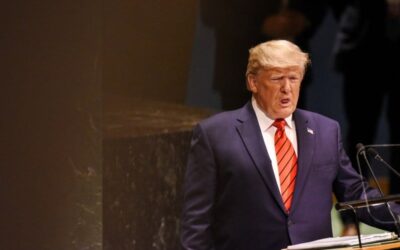
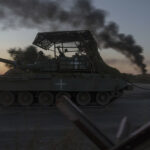
















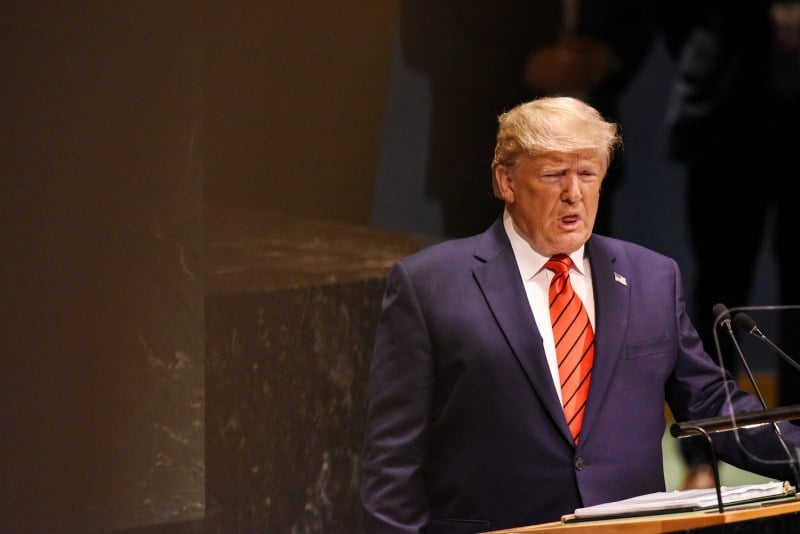
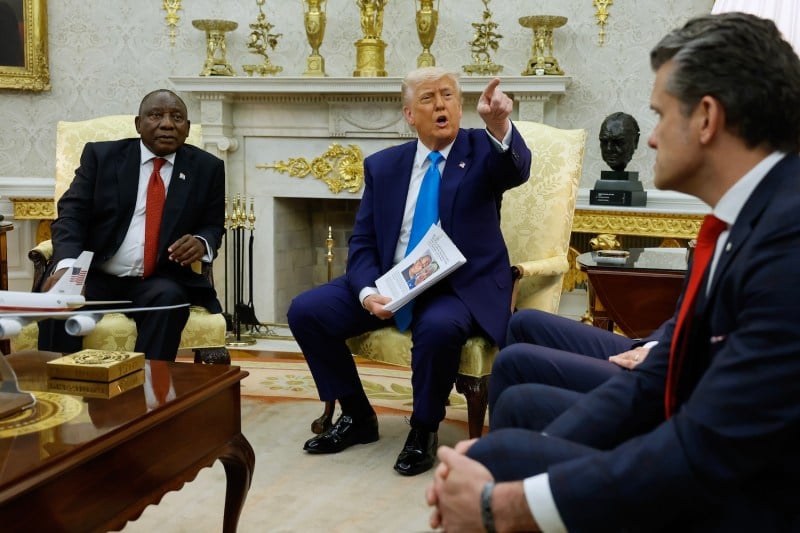
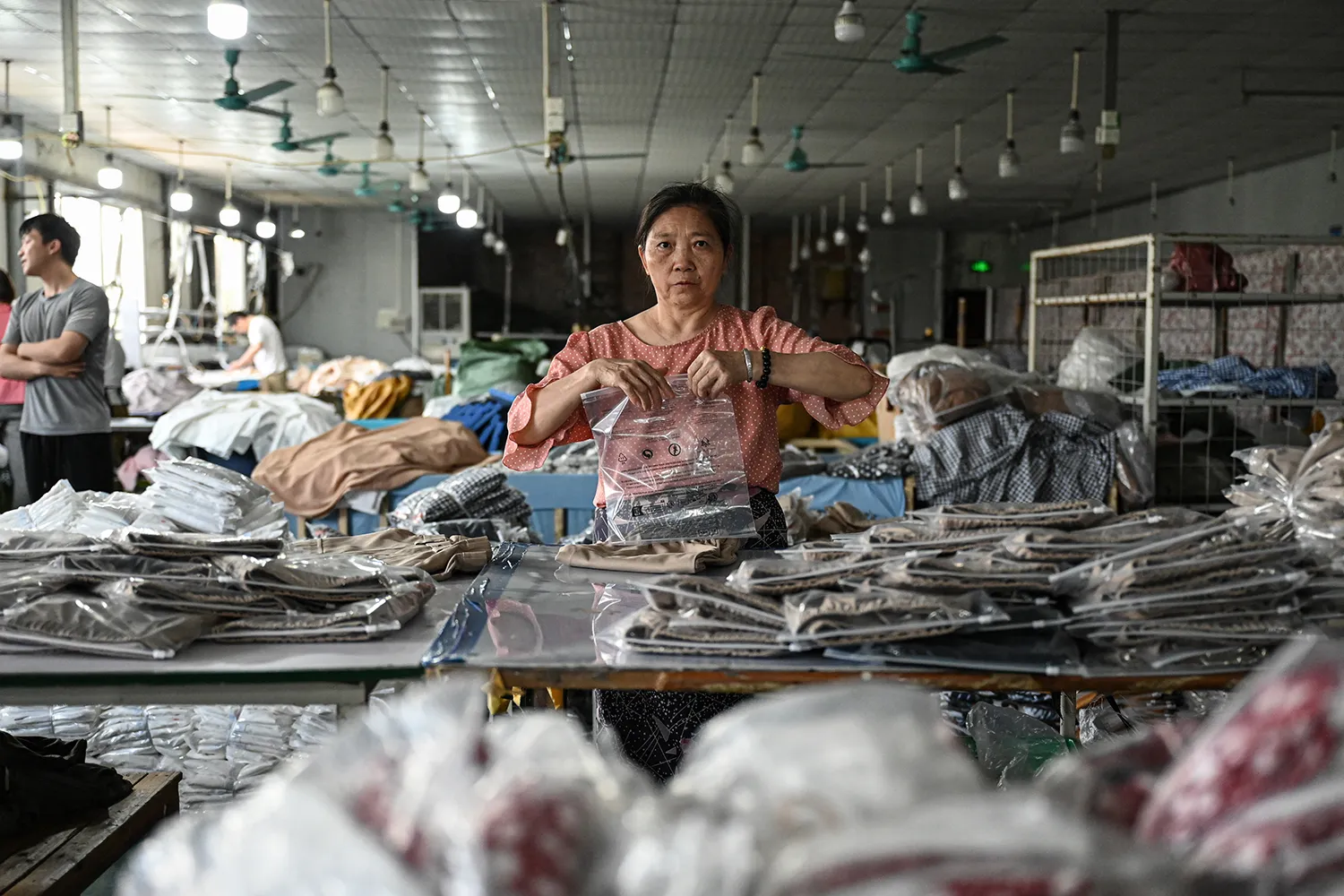
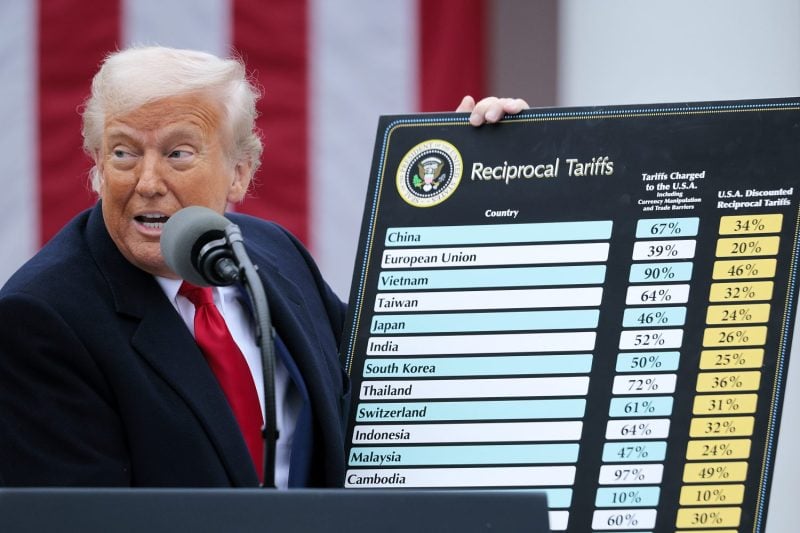
Join the Conversation
Commenting is a benefit of a Foreign Policy subscription.
Subscribe
Subscribe
Already a subscriber?
.
View Comments
Join the Conversation
Join the conversation on this and other recent Foreign Policy articles when you subscribe now.
Subscribe
Subscribe
Not your account?
View Comments
Join the Conversation
Please follow our comment guidelines, stay on topic, and be civil, courteous, and respectful of others’ beliefs.
View Comments
Change your username |
Log out
Change your username:
CANCEL
Confirm your username to get started.
The default username below has been generated using the first name and last initial on your FP subscriber account. Usernames may be updated at any time and must not contain inappropriate or offensive language.